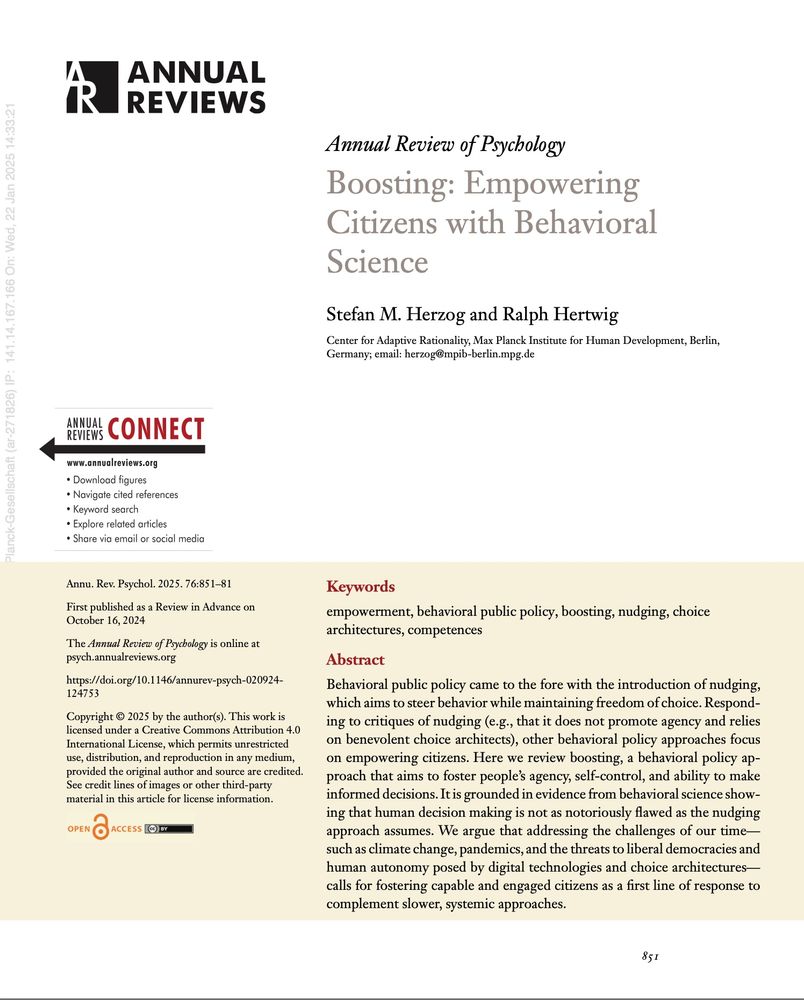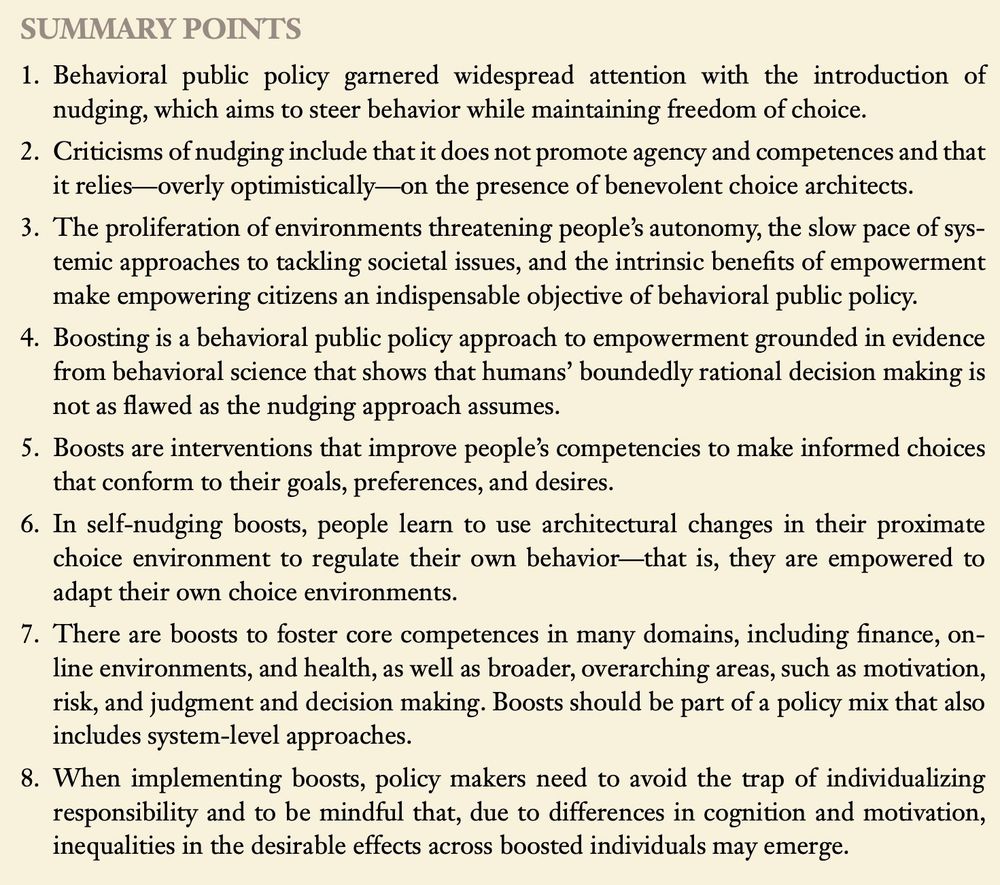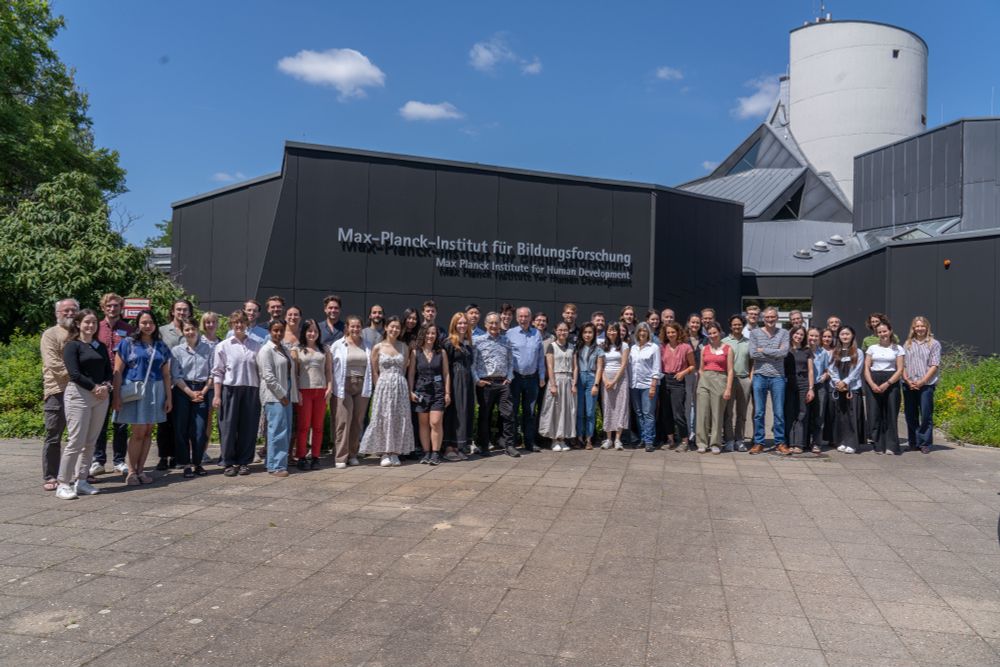Stefan Herzog
@stefanherzog.bsky.social
3.3K followers
1K following
190 posts
Senior Researcher @arc-mpib.bsky.social MaxPlanck @mpib-berlin.bsky.social, group leader #BOOSTING decisions: cognitive science, AI/collective intelligence, behavioral public policy, comput. social science, misinfo; stefanherzog.org scienceofboosting.org
Posts
Media
Videos
Starter Packs
Pinned
Reposted by Stefan Herzog
Reposted by Stefan Herzog
Reposted by Stefan Herzog
Reposted by Stefan Herzog
Reposted by Stefan Herzog
Reposted by Stefan Herzog
Reposted by Stefan Herzog
Christoph Abels
@cabels18.bsky.social
· Jul 7
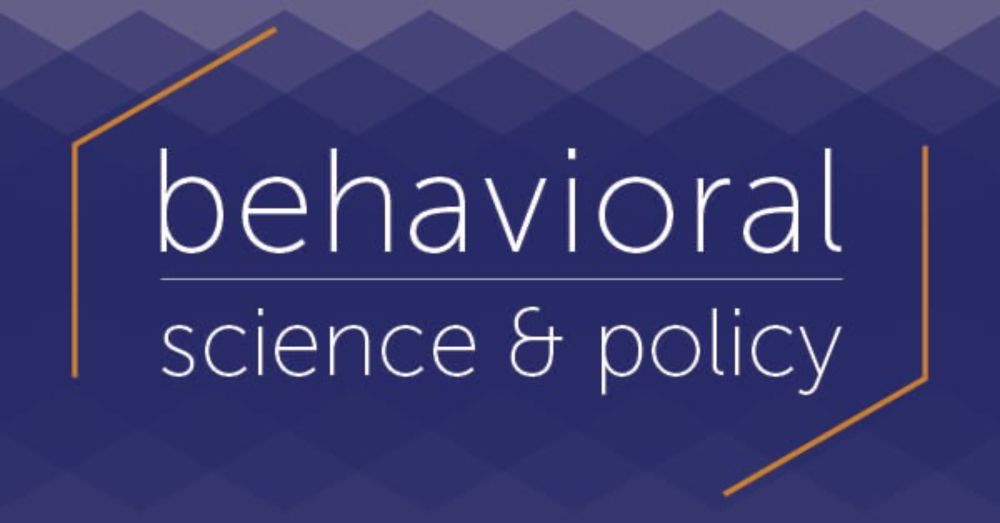
The governance & behavioral challenges of generative artificial intelligence’s hypercustomization capabilities - Christoph M. Abels, Ezequiel Lopez-Lopez, Jason W. Burton, Dawn L. Holford, Levin Brink...
Generative artificial intelligence (GenAI) is changing human–machine interactions and the broader information ecosystem. Much as social media algorithms persona...
journals.sagepub.com
Reposted by Stefan Herzog
Christoph Abels
@cabels18.bsky.social
· Jul 28
Ezequiel Lopez-Lopez
@eloplop.bsky.social
· Jul 28
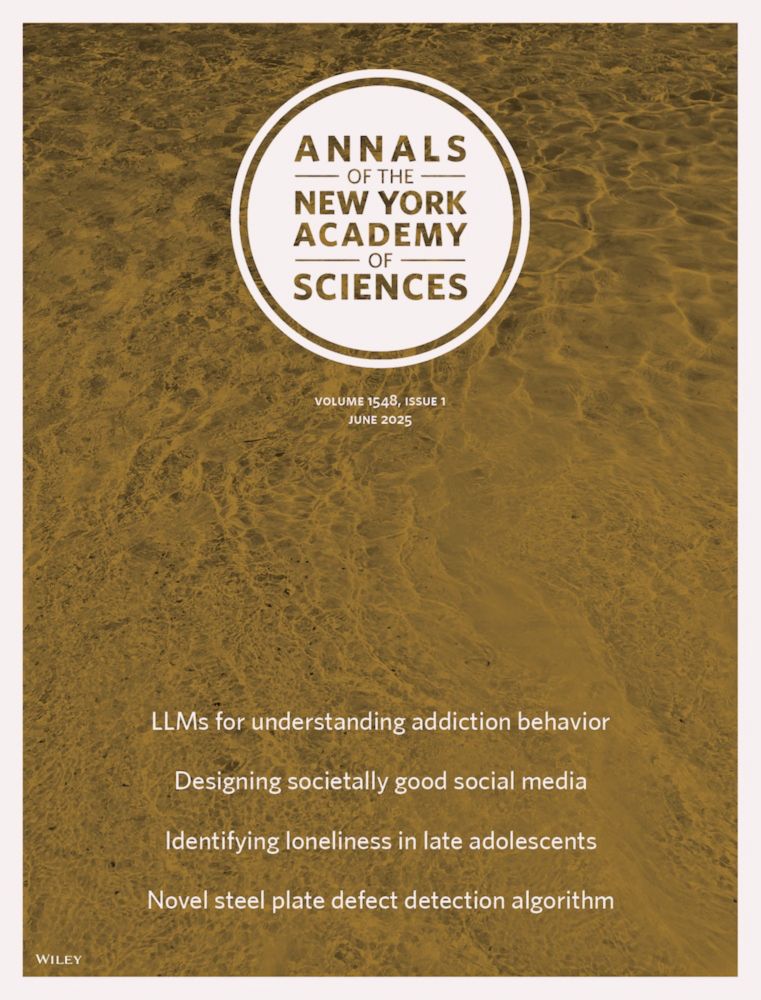
NYAS Publications
Generative artificial intelligence (GenAI) applications, such as ChatGPT, are transforming how individuals access health information, offering conversational and highly personalized interactions. Whi...
nyaspubs.onlinelibrary.wiley.com
Reposted by Stefan Herzog
Ezequiel Lopez-Lopez
@eloplop.bsky.social
· Jul 28

NYAS Publications
Generative artificial intelligence (GenAI) applications, such as ChatGPT, are transforming how individuals access health information, offering conversational and highly personalized interactions. Whi...
nyaspubs.onlinelibrary.wiley.com
Reposted by Stefan Herzog
Reposted by Stefan Herzog
Tobias Galla
@tobiasgalla.bsky.social
· Jul 16
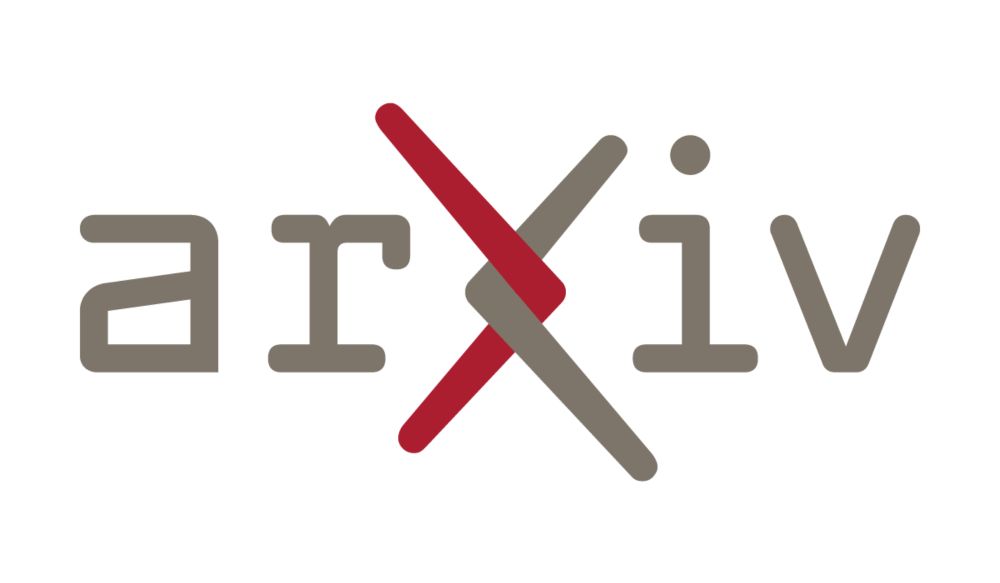
Opinion dynamics: Statistical physics and beyond
Opinion dynamics, the study of how individual beliefs and collective public opinion evolve, is a fertile domain for applying statistical physics to complex social phenomena. Like physical systems, soc...
arxiv.org
Reposted by Stefan Herzog
Stephan Lewandowsky
@lewan.bsky.social
· Jul 14

A language model built for the public good
ETH Zurich and EPFL will release a large language model (LLM) developed on public infrastructure. Trained on the “Alps” supercomputer at the Swiss National Supercomputing Centre (CSCS), the new LLM ma...
ethz.ch
Reposted by Stefan Herzog
Jamie Cummins
@jamiecummins.bsky.social
· Jun 23
Reposted by Stefan Herzog
Reposted by Stefan Herzog
Christoph Abels
@cabels18.bsky.social
· Jul 7

The governance & behavioral challenges of generative artificial intelligence’s hypercustomization capabilities - Christoph M. Abels, Ezequiel Lopez-Lopez, Jason W. Burton, Dawn L. Holford, Levin Brink...
Generative artificial intelligence (GenAI) is changing human–machine interactions and the broader information ecosystem. Much as social media algorithms persona...
journals.sagepub.com
Reposted by Stefan Herzog

